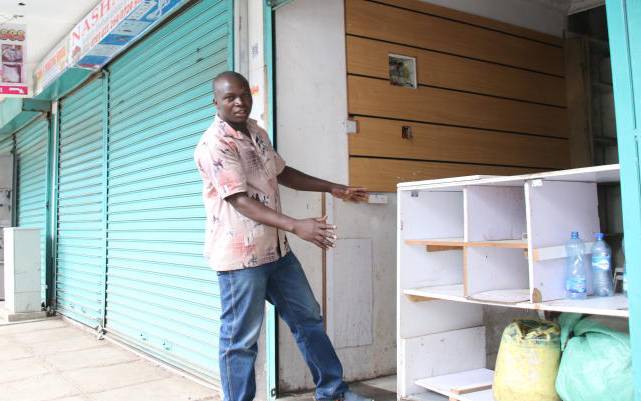×
The Standard e-Paper
Stay Informed, Even Offline

A security personel Jackton Ombocho shows one of the shops vacated by a business trader of kitchenware items due to the government stringent regulations and policies on importation of goods at Nyamakima's KK house building on 10th May 2019. [David Gichuru/Standard]
At the heart of Nairobi’s Nyamakima area on Duruma Road, Cosmas Githaiga, sits on his empty handcart pondering his fate.